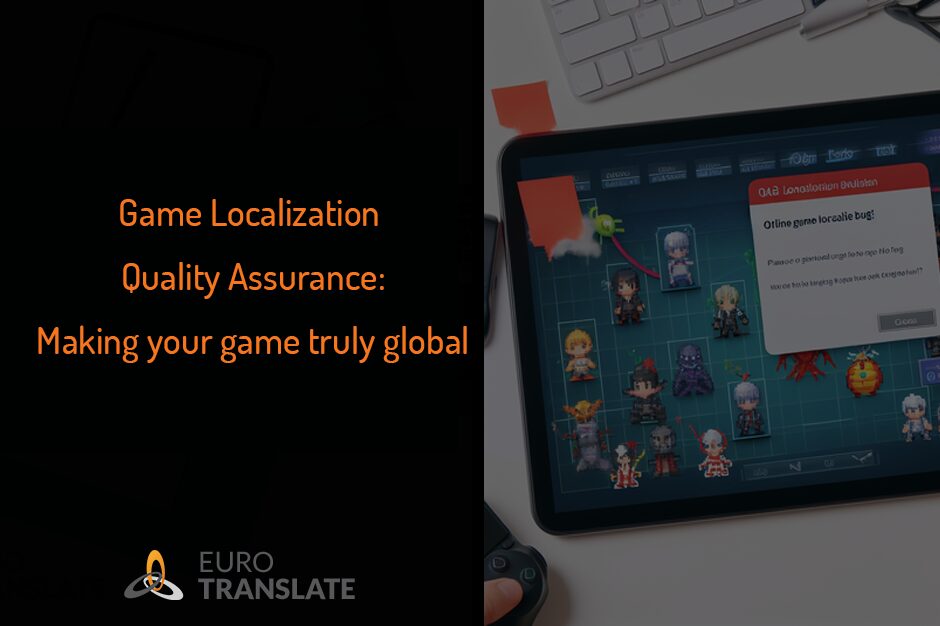
In the world of game development, you might be a top-notch developer or lead an exceptional team, but chances are, your crew doesn’t speak every language your game is set to conquer.
So, how can you ensure that the translated version of your game is just as awesome as the original, with all those clever puns and jokes landing right?
This is where localization QA testers come into play.
What is Game Localization Testing (LQA)?
Localization Quality Assurance (LQA) is the final stage in the game localization process. It primarily focuses on linguistic testing, translation quality review, and can also cover UI/UX evaluation, compliance testing, culturalization, internationalization, and functional tests.
Essentially, native-speaking experts play and review your game, ensuring there are no linguistic or visual hiccups.
Why is LQA important?
When your game is set to launch in multiple languages, each version should be tested by a native professional. This is especially crucial for languages with variations, like European and Brazilian Portuguese, or European and Latin American Spanish. General linguists may miss out on local jokes, cultural references, and specific nuances.
LQA ensures that your game is not only translated accurately but also fits seamlessly into different languages, considering cultural differences and preferences. It checks for a natural flow, consistency, and the absence of errors in terminology, making sure your game resonates with players worldwide.
What’s Inside Game Localization QA?
Linguistic QA and Visual QA are the key components of localization quality assurance in games. While the main focus is on language-related aspects, functionality issues or bugs are also regularly caught and reported.
Language Quality Assurance
Linguistic game testing targets mistakes in game scripts and voice-overs, fixing spelling, grammar errors, mistranslations, and more. Bugs include grammar mistakes, issues with numeric formats, country-related errors, and voice-over problems. Ensuring the natural flow of language and handling sensitive cultural references is crucial.
Visual Quality Assurance
Visual QA checks for design-related issues like truncated characters, font problems, untranslated content, and UI/UX evaluation. It ensures that the game looks as intended across various platforms and fixes any visual glitches.
Functional Quality Assurance
Functional QA targets art, graphic, and engineering bugs, addressing issues like international keyboards, links, compatibility, performance, AI behavior, and audio problems. This step ensures your game runs smoothly without any unexpected hiccups.
When to consider LQA services?
Consider using LQA if you don’t have an in-house QA team, need an extra opinion on translated content, have languages with different alphabets, or want a quicker testing process compared to functional and linguistic QA.
Why choose LQA for your game?
Choosing LQA helps save costs, prevents negative reviews, and keeps gamers happy. Finding and fixing bugs before the game is published is always better than addressing them later.
In conclusion, while hilarious mistranslations might become viral sensations, having your game remembered for them might not be the best outcome. LQA ensures your game shines in every language, making it a hit worldwide.

